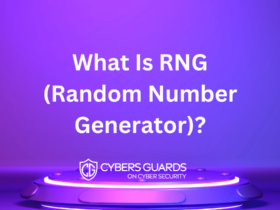Games have played an integral role in human culture since the dawn of civilization. Evidence of game boards has been unearthed dating back to 3500BC or even further, some of which have provided the inspiration for modern games we still play to this day. In more recent years, the gaming industry has been revolutionised, firstly by the introduction of computers and video games, and later by the advent of the internet and mobile. Gaming today is a multi-billion dollar industry which generates around two and half times more revenue than recorded music and cinema box office ticket sales combined.
Gamers today have myriad options to choose, ranging from classic board and card games to online poker, online role playing games, arcade shooters, slots and many more. With more games gravitating online, data security is becoming a new issue that gamers need to consider when selecting what and where to play. Online gaming, often referred to as iGaming, is enjoyed by millions, but each player needs to be assured that their personal details will be kept safe before signing up to a new game or website.
Security and compliance are key issues that the global iGaming industry has to deal with. Gaming is highly regulated internationally, and in most cases, gamers who choose licensed websites and reputable game providers will find no issues in terms of data protection. From the earliest days of online gambling, regulators realised there would be a growing requirement for information security legislation. As a result of this knowledge, iGaming technical standards have incorporated high quality security measures almost from the very beginning. Each gaming jurisdiction may have its own specific standards, guidelines and rules, but the iGaming industry itself has also taken on the burden of responsibility to ensure players are kept safe online.
iGaming sites are duty bound to ensure players are protected from themselves, as well as other people who are looking to take advantage of them. 888 recently launched a campaign focussing on Responsible Gaming, the video below, found on the 888poker channel, highlights the impact of over-playing in the same way you can over-water a plant. Responsible gaming is a hot topic within the gambling industry, with gambling companies now taking an active role in raising awareness for problem gambling.
While companies promote gambling responsibly, staying safe online is also the responsibility of the players. Part of the process of keeping people’s private or sensitive information safe online involves educating the players themselves. Most reputable gaming sites will provide players will all of the relevant information they need to know how to best ensure their own security and stay safe from cyberthreats such as hackers or viruses. This includes offering advice on creating secure passwords and usernames to make it harder for others to access personal information. Players are also advised to only use reputable sites for downloading games, and to log out of those sites after each download is complete, particularly if using a shared computer. Making friends online is part of the online gaming experience, but players should not share personal information either during gameplay or in any online forums.
The iGaming companies and websites also have stringent security policies in place for consumer data protection. Tracking and monitoring systems help companies to detect any malicious activity as it happens and implement measures to prevent it going any further. For real money gambling websites or pay-to-play online games where the financial details of each customer need to be taken, security is an even bigger issue. Platform developers and iGaming companies should and do put in place top level security systems when dealing with customer financial details. Customers should be aware of what symbols and assurances to look for before entering financial details into any website. Things to look for include a padlock symbol displayed to the bottom-right of the browser window, and https:// rather than just http:// at the start of the website URL – the “s” stands for secure.
AML and KYC software (anti-money laundering and know your customer) should be automatically applied to iGaming websites as a first step, along with secure software for payment transactions. There may also be certain restrictions in place, such as geographic restrictions on access to certain content because of licensing laws or legislation specific to the jurisdiction. Restrictions on certain countries are in place by gambling companies, they ensure only players are accessing their games where it is legal to do so, their geo-restrictions are tough to bypass and they have the ability to keep a players winnings or ban them from the tables if they are gambling from a region where their site should not be accessed from. Sites that ask for complex authorization and authentication procedures (granular access control) are complying with regulations and keeping customers safe.
iGaming providers have a responsibility to ensure that any software, hardware or other technology used has been rigorously tested for safety and all technical standards have been met or exceeded. Testing should be performed prior to implementing the technology and on a regular basis for as long as it is in use.
The UK has one of the largest gambling populations in the world and is renowned for its gaming and gambling legislation, which allows for a broad range of services without tolerating low-quality sites or criminal activity of any kind. Several hefty fines have been handed out to operators in the UK who have failed to meet security and compliance standards, which acts as a deterrent for any future operators thinking about trying their luck. Responsible gambling practices are prioritized by the UK Gambling Commission and any sites operating there are required to have the proper security measures in place to prevent any breach of data security or any form of fraud.
Players choosing reputable sites, which include all the biggest names in iGaming, should have no concerns over data protection, financial security or any other form of security online. Regulations put in place by governments combine with strict testing measures implemented by the companies themselves to result in an online gaming environment that is as safe as possible. Only users of unregulated sites need worry about what might happen to their personal data.










Leave a Reply